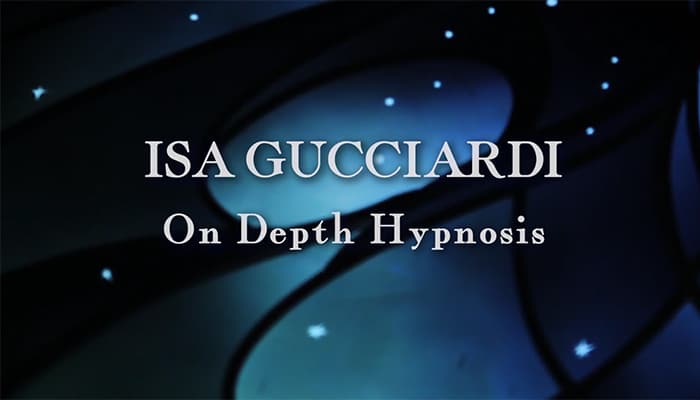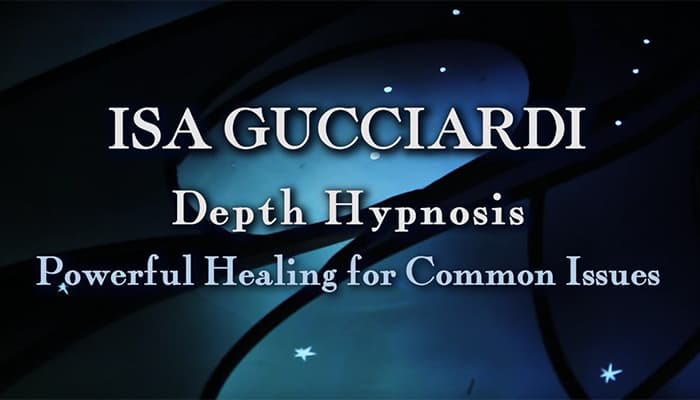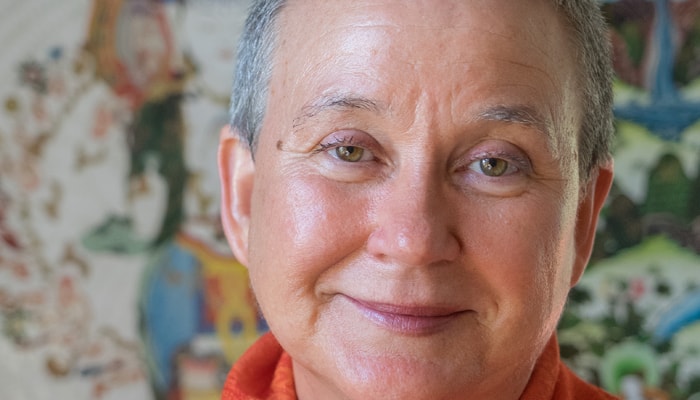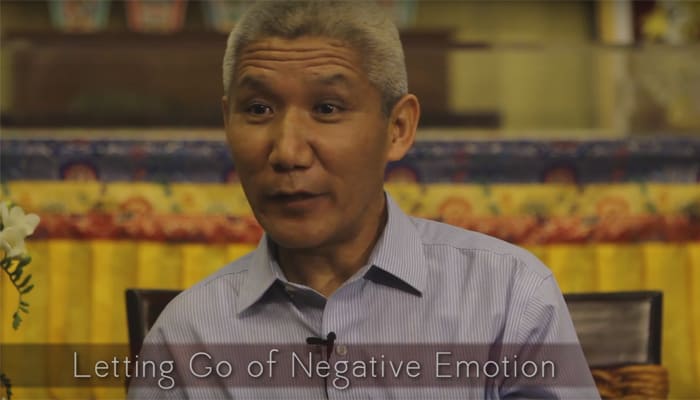Category: Trauma
Article: Healing and Awakening with Buddhism and Shamanism
By Isa Gucciardi, Ph.D.
I’ve been exploring Buddhism and plant medicine and psychedelics for about six years now. One area that I find really absent in a lot of the conversations on psychedelics and spirituality is indigenous shamanism, and it’s hard to find people who know much about that, and also have some kind of Buddhist framework. That’s why I was so excited to hear about your work and listen to some of your talks.
The main question I’m working with in this book is how can we engage with plant medicines as tools or technologies to support awakening? How can we understand the psychedelic experience and also the outputs of psychedelics through a lens that is with the intention of awakening? When I heard about Depth Hypnosis and your work, I thought it would be amazing to talk to you and hear your thoughts on this. You’ve spoken about the catalytic power of shamanic practice and how you feel that there’s potential in that to be harnessed by Dharma practitioners in service of Awakening. This seems to be the focus of your work with Depth Hypnosis, so maybe we could start there.
Blog: How Integrated Energy Medicine Heals
By Isa Gucciardi, Ph.D.
Integrated Energy Medicine is the most subtle aspect of Depth Hypnosis, and also one of the most important features of the model. In addition to providing access to information about subtle experience influencing presenting symptoms, it is an important tool in healing.
With Integrated Energy Medicine, fields of light and sound can be focused by practitioners and guides to help clients move through resistance and blocks. These fields are used to support clients working at any level. They are especially helpful for those who are venturing into new and sometimes uncomfortable spaces within themselves for the first time. They can also be used to reconfigure and retrain patterns of experience and behavior arising from the deepest levels of the psyche.
Blog: Overcoming Denial: Part 3
By Denise Colby
It goes without saying that what makes doubt and denial so good at keeping you shackled is that you don’t know what you don’t know. If you can’t see it, how on earth do you begin to heal? There are many ways that truth begins to surface within us, but this is one of the places where a consciousness practice can be quite helpful. In the first part of this article, we discuss some of the ways in which we become aware that things are not as they seem and all is not well. This section addresses what to do once you have made the commitment to move into the light and live in truth.
Blog: Overcoming Denial: Part 2
By Denise Colby
If we have been in deep denial about some aspect of our experience, the revelation of truth will at first be a painful one. Truth will make its entrance in ways that will seem quite disturbing—intrusive thoughts, nightmares, innocuous interactions producing strong emotions, or a general feeling that one is “not OK.” It is at this juncture that we come to a choice: we can stay in denial and find external reasons to justify our internal experience, numbing and modulating using whatever coping mechanisms we have, or we can claim our internal experience as something uniquely personal and get very curious about it.
There are many roads out of denial, but at some point we will have to choose to validate what our body and reactivity is saying over the story we’ve been telling ourselves. This breaking down of an old story — the acknowledgement that we’ve been telling ourselves a false story our whole lives — provides the crack where the light of truth can finally break through to our awareness.
Video: Isa Gucciardi on Depth Hypnosis
In this in-depth interview, Laura Chandler talks to Isa Gucciardi about the highly effective therapeutic model Isa developed called Depth Hypnosis. Influenced in part by aspects of Buddhism and shamanism, Depth Hypnosis uses altered states such as meditation, hypnosis, and the shamanic journey to access ordinarily hard to reach aspects of the self in order to gain insight and effect change. Isa explains the relevance of the higher self, universal consciousness, somatic experience, energy medicine, and spontaneous regression to the healing process.
Video: Depth Hypnosis: Powerful Healing for Common Issues
In this conversation with Laura Chandler, Isa Gucciardi describes many of the common issues people seek help with, including relationships, autoimmune issues, phobias, anxiety, and spiritual crisis. Isa also talks about a common phenomenon known as the “Inner critic” and how her book, Coming to Peace, offers insight on the inner critic and how to heal it. This interview takes place at the Sacred Stream Center in Berkeley, CA.
Blog: Ask Isa: Are All Past Lives Traumatic?
By Isa Gucciardi, Ph.D.
Question: It seems like all the past lives I contact with Depth Hypnosis are traumatic in nature. Do we have happy past lives?
The concept of reincarnation is found in many spiritual traditions. To my mind, the tradition that best articulates the relationship between our previous lives and our current life is Buddhism. In that tradition, there is a concept called a “sanskara.” A sanskara is an imprint that contains information about the focus of the mind at the time of death. The information contained in this imprint is considered to be at least part of the focus upon which the next lifetime is based. For this reason, Tenzin Wangyal, a well-known Buddhist teacher, says, “If you want to know what your past life was, look at your current life. If you want to know what your future life will be, look at your present life.”
On The Air: New Dimensions Radio: Conflict Is A Gateway For Healing with Isa Gucciardi, Ph.D.
In this New Dimensions Radio interview with Justine Willis Toms, Isa Gucciardi, Ph.D., explains that people come to hypnosis for help with many addictions such as wanting to quit smoking, wanting to lose weight, drinking, or gambling to name a few. She says, “The truth is that the symptom is the tip of the iceberg…The symptom becomes the path to healing in depth hypnosis.” She shares examples of family dynamics. For instance, one stepfather was resistant to the Coming to Peace process but eventually, with deep listening and patience, the sessions led to a deep healing for the entire family. In her experience as a therapist she has discovered that many times conflicts are rooted in parts of the self that are in conflict within, and these parts drive the conflict externally. She leads her clients in constructive conversations with those internal parts and guides them on a voyage within to explore unconscious motivations. This work involves a spaciousness; it requires one to hold back judgements and jumping to conclusions too quickly. It takes practice and patience to develop the skill to do this Coming to Peace work that applies the Buddhist principles of patience, tolerance, mutual respect, and compassion.
Blog: Finding your Spiritual Path Part 2: Forgiveness, Blame, and Shame
By Isa Gucciardi, Ph.D.
My previous post began to address the spiritual crisis that many people experience when a spiritual or religious leader has harmed people and broken their trust. Those who don’t abandon their spiritual paths entirely are faced with the challenge of trying to incorporate the experience of betrayal into the way that they hold their faith or their trust. One challenge people face in this situation is that the spiritual authorities that harmed others are not always willing to take responsibility for their actions. They feel they cannot move on until the issue is resolved through those who have generated the betrayal taking responsibility and asking for forgiveness. Fortunately, even when spiritual authorities refuse to take responsibility, it is possible for the spiritual seeker to engage in an internal process of forgiveness.
Blog: Finding Your Spiritual Path Part 1: Understanding Betrayal
By Isa Gucciardi, Ph.D.
Since the movie Spotlight came out in 2015, more and more people have come to our classes at the Sacred Stream looking for a different path to spiritual understanding. Spotlight is about the efforts of a group of journalists from The Boston Globe who were directed by their editor, Marty Baron, to investigate accusations against John Geoghan, a Catholic priest who had been accused of molesting young boys in different parishes during his long tenure as a spiritual leader in the Catholic community. The movie focused not only on these distressing events but also on the way the Roman Catholic Church tried to keep the truth of these events from the public. The investigation revealed a massive cover-up at the highest levels of the Church of the effect of Geoghan’s actions, and pointed to similar occurrences and cover-ups over the course of many years by the Church.
Because Sacred Stream has long been known for its non-dogmatic, inclusive approach to the world of spirit, it has been a safe place for people to explore their difficulty in incorporating these events within the context of their faith.
Special Announcement: Pilot Study Presentation on the Efficacy Studies of Depth Hypnosis
On Friday, November 11, Dr. Joanna Adler will present the results of a pilot study – “Can Depth Hypnosis Heal Mood Disorders?” – that examines the efficacy of Depth Hypnosis in the treatment of the symptoms of depression, anxiety, and post-traumatic stress disorder (PTSD), as well as show an increase in experience of well-being. The hypothesis of the study was that symptoms from the three mood disorders would go down, and experience of well-being would rise. The results support this hypothesis.
Video: Letting Go of Negative Emotion with Thupten Jinpa, Ph.D.
Thupten Jinpa explains how mindfulness and compassion practices can help us let go of negative emotion and lead happier and healthier lives. Excerpted from a talk given at the Sacred Stream Center in Berkeley, CA. Thupten Jinpa is the author of A Fearless Heart: How the Courage to Be Compassionate Can Transform Our Lives, and English translator for His Holiness the Dalai Lama.
Article: Depth Hypnosis, Soul Retrieval, and Addiction
By Isa Gucciardi, Ph.D.
There are many different understandings about the nature of addiction. In working with addiction through my practice of Depth Hypnosis, I have found that it is helpful to apply the diagnostic and restorative methods provided by shamanism to help resolve addictive issues permanently.
Article: Shamanic Counseling Case Study: Soul Retrieval
By Isa Gucciardi, Ph.D.
From the shamanic perspective, one of the primary causes of imbalance is soul loss. Soul loss can be caused by any type of trauma: emotional, physical, spiritual, or psychological. And trauma can be the result of many things including verbal or physical attack, surgery, abuse, or a sudden loss. From a shamanic perspective, when trauma occurs, a soul part can become “frozen outside of time.” When this happens, the soul part does not evolve with the person as they continue their life. If this situation is not addressed, many problems can occur, including depression, addiction, and even chronic illness.
Article: War and Soul Loss
By Isa Gucciardi, Ph.D.
It has been unfashionable for veterans returning home from war to talk about the effect their experiences during the war has had on them. I have had countless children of veterans tell me that their fathers had never once spoken of their experience in World War II, Korea, or Vietnam. I have known veterans who stop speaking when war is brought up. Most men returning from war have turned to silence to deal with the trauma of their experience on the battlefield. This is, after all, the “manly” thing to do. The effect that this silence has on their personal life, their family life, and the society in which they live is often minimized or completely disregarded.















